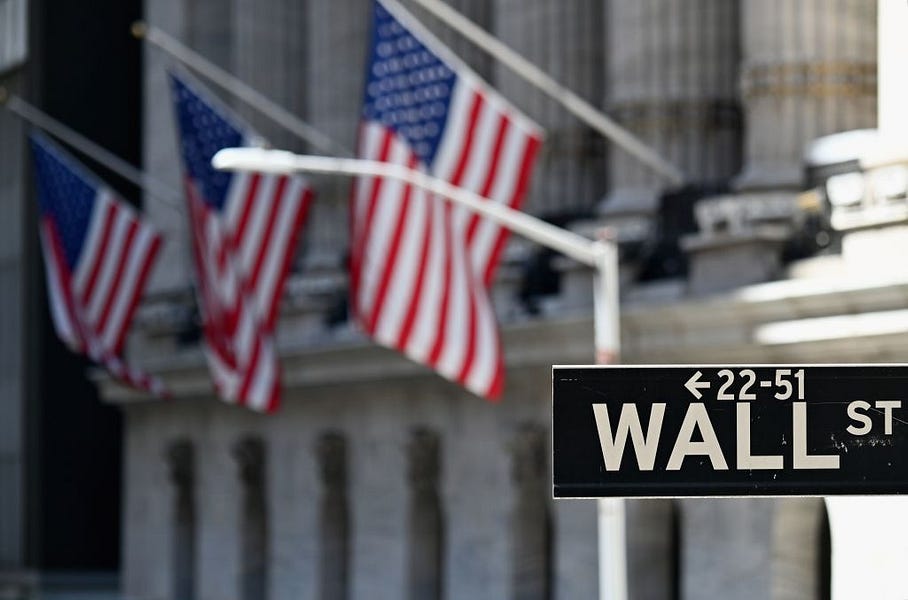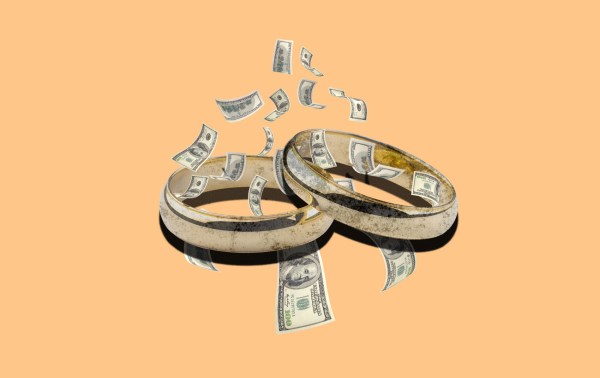The pandemic has left millions of Americans unemployed and lockdowns have left people at home with little to do. Meanwhile, since a crash in March that rivaled that of 1987, the stock market has rebounded. Last Tuesday, the S&P 500 and Nasdaq closed at record highs. Add all that together, and it’s unsurprising that amateur traders—also known as retail investors—have flooded the market in historic proportions. They have flocked to zero-fee broker firms en masse during the pandemic in search of big returns while the getting is good.
This influx of amateur day traders into the market has worried many Wall Street analysts who have witnessed a spike in unusual behavior ever since. For example, it is widely believed that retail investors are behind the Hertz bubble in June. Hertz’s price shares grew tenfold—thanks in part to those who have accounts with Robinhood, an online brokerage firm—just days after the car-rental company filed for Chapter 11 bankruptcy in late May, puzzling market analysts who are used to seeing investors run for the hills in the face of such worthless stocks.
These new day traders have turned to a number of brokerage firms, but Robinhood has been the most popular by a long shot. The number of Robinhood accounts surged from 10 million to 13 million during the first four months of this year, as Americans looked for new revenue streams during a time of economic hardship, or ways to pass the time when other pastimes aren’t an option.
The coronavirus pandemic also led to a temporary moratorium of professional sports, meaning those who previously spent their days sports betting or playing Texas Hold ‘em in their local casinos have flocked to day trading as an alternative form of gambling.
The inspiration behind Robinhood can be traced back to around 2011, when the Occupy Wall Street movement grew popular among young Americans who felt they were being cheated by what they believed was a corporate oligarchy. Where most young progressives saw financial ruin and an unfair market, two young entrepreneurs—Vladimir Tenev and Baiju Bhatt—saw opportunity. The two met in 2005 while undergraduates at Stanford where they became best friends. They founded a new trading startup that quickly took off, but the young Wall Street junkies quickly abandoned the project after a new epiphany dawned on them. “We were making the top 1% of people wealthier,” Tenev told Fast Company in 2017.
“We were in the center of a lot of the frustration around the financial system,” Bhatt told the Wall Street Journal in February. “A lot of people were feeling like it was fundamentally broken.” So they brainstormed a new idea that they believed could undo young people’s fear of investing: A zero-fee trading app. Founded in 2013 and officially released in 2015, Robinhood—named after the folkloric hero who stole from the rich and gave to the poor—was born into the stock market stratosphere. Five years later, it now hovers around an $11.2 billion valuation, stoking rumors that the company might go public soon.
Before Robinhood revolutionized the stock market by offering zero-fee trading—which is now the norm among trading services—legacy brokerage firms were charging $5 to $10 per trade. On Robinhood, users can buy stocks, ETFs, options, and cryptocurrencies. No minimum account balance is required before joining the app and users can even buy fractional shares of their favorite stocks. Since the service doesn’t charge for trades, Robinhood makes money by investing idle funds, encouraging users to buy other subscription based services on the app, and directing trades to third party firms in a process called payment for order flow.
“We’ve seen record trading volumes and record depositing activity,” Tenev said during an interview with CNBC’s Jim Cramer on April 20. He added that Robinhood “has continued to have over 50 percent of the market share of new brokerage accounts,” which breaks down to more than “all of the incumbent legacy providers put together.” According to App Annie data, Robinhood “accounted for 35% of those downloads and over 50% of the downloads for the top 10 active trading apps.” According to a Robinhood spokesperson, the median user age is just 31 years old, and more than half of its customers are first time investors.
Just opening up a Robinhood account comes with benefits: Users are given a free share of a stock upon opening an account and are granted the opportunity to keep racking up free shares when they invite new users to the platform. A “free stock” button constantly lingers in the top right-hand corner of the app’s home screen, feeding into the notion that gains are always just one click away.
The Robinhood app, which is bright green and boasts a feather in honor of its namesake, also has an incredibly user-friendly interface that feeds into its game-like aura. A user’s message portal fills with emojis and celebratory confetti anytime a trade takes place. Users can watch stocks teeter and totter in real time. Given the Pavlovian experience of it all, it’s easy to see how even the app’s colors drive the adrenaline rush of winning big. But is the stock market really about winning after all?
“I think a lot of people kind of have the wrong idea about what the stock market is, especially the younger crowd who is new to trading and new to investing in general,” said Luke Lloyd, a wealth adviser and investment strategist for Strategic Wealth Partners, during an interview with The Dispatch. He explained that many first time Robinhood users don’t have retirement accounts or even savings accounts, and are simply approaching the stock market as a “get rich quick” scheme when it’s not. Other financial gurus disagree.
Barstool founder Dave Portnoy—a favorite among sports fans nationwide—has led the charge for sports bettors to enter the day trading frenzy. “I’m not a financial advisor,” his Twitter bio teases to his 1.7 million followers. “Don’t trust anything I say about stocks.” Known by fans as Davey Dave, Portnoy is the new poster child for retail investors who want to become Wall Street tycoons from their living rooms. Portnoy may be one of the biggest names in the day trading world, but other self-proclaimed financial gurus have cropped up all over the internet in recent years, creating social trading communities on YouTube, Twitter, and Facebook. Even Reddit has its own hub of investment advice. The Reddit forum “r/wallstreetbets”—which calls itself “a community for making money and being amused while doing it”—almost doubled its readership base since January, surpassing 1.4 million subscribers.
Social media gurus drive Lamborghinis, travel the world in private jets, and tell their subscribers in trading tutorials that all they have to do is hop into the market in order to live a lavish lifestyle. “What’s happening here is these gurus will flaunt this lifestyle when they actually aren’t probably even making money themselves in the stock market anymore,” explained Lloyd.“They’re probably just charging subscription service and making all this money from people subscribing to the newsletter that they have.”
Meanwhile retail traders seem to be flat out ignoring more professional advice when it comes to investing in the stock market by betting on worthless stocks in the hopes of short-term gains. “One of the aspects of this is a sense that these young investors know more than the old institutional guys,” said Peter Atwater, adjunct lecturer in the economics department at William and Mary. “There’s sort of a stick it to the man mindset, so even objective data that is presented is going to be discounted by a mindset that this time is different.” When it comes to sports betters like Davey Dave, “They’re not even trying to mask this as investing,” Atwater said. “This is pure gambling.”
Robinhood denies that the platform is a gambling hub. “Those who dismiss retail investors as ‘gamblers’ perpetuate the myth that investing is only for the wealthy and highly educated,” a Robinhood spokesperson told The Dispatch. “We built Robinhood to be a platform for customers to learn and to invest responsibly, and most of our customers use a buy and hold strategy with their investments.”
Still, market analysts wonder whether the service is encouraging smart investment and making people financially secure in the long run. The service provides analyst ratings below each stock option to aid novice traders with their investment choices, delineating percent margins as to whether investors say users should buy, sell or hold their stocks in a particular company. According to 35 analyst ratings of Tesla stock on the Robinhood app for example, 20 percent of analysts say buy, 43 percent say hold, and 37 percent say sell (as of this writing). It’s unclear whether this advice is meaningful to retail investors who lack concrete financial expertise in stock trading. If a stock is green on any given day, that might be enough of a reason for an inexperienced investor to buy in bulk and cross their fingers in hopes of a return on investment.
The company was hit with some negative press in June after 20-year-old trader named Alex Kearns committed suicide after believing he had lost hundreds of thousands of dollars while day trading options on Robinhood. In his suicide note, Kearns wrote that he’d accumulated a negative $730,165 cash balance in Robinhood (although there appeared to be a misunderstanding about negative cash). “How was a 20 year old with no income able to get assigned almost a million dollars worth of leverage?” Kearns wrote in his suicide letter. “There was no intention to be assigned this much and take this much risk, and I only thought that I was risking the money that I actually owned.”
Robinhood’s co-CEOs published a blog post on June 19 after learning of Kearns’ suicide, saying they were “personally devastated” by the tragedy and were committing to new educational criteria and resources for options trading on the platform. But concerns about the trading app remain, especially since the service has now faced several service outages, one of which lasted an entire trading day.
Many young and amateur Robinhood traders also appear to be wildly misinformed about the tax consequences that go hand in hand with using the service. Robinhood does not offer retirement accounts, meaning the tax-deferred growth one traditionally finds in an IRA or 401(k) is off the table for investors. All gains are taxable, which may come as a surprise to younger users on the platform. “If you’re under 18 for example, some of these kids are opening up brokerage accounts under their parents’ names and just creating tax liabilities that their parents are probably unaware of,” Lloyd said.
Trading experts often offer two major pieces of advice to inexperienced investors: Patience and diversification. Day trading undermines both of these dictums by encouraging inexperienced investors to buy and sell while the market’s hot, even if that means pouring all of your money into penny stocks like Hertz. “If you call a 20 year old and say ‘Hey, you do this strategy and over the next 40 years you can retire at 60 years old with a couple of million dollars,’ ” Lloyd teased, “Nobody wants to do that: They think, ‘Oh well I’ll be 60 years old, and I don’t even know if I’ll make it to 60.” The attraction of long term wealth creation is very very minimal compared to the attraction of getting rich very quickly. “Buying option derivatives is like going to the casino and taking all of your money, sitting down with the roulette table, and picking one number when you have a very little chance of hitting that number,” Lloyd said. “But if you hit it, you hit it big.”
Many retail investors have indeed won big during this quarter’s historic rally. But these gains won’t last forever. “The one problem I have with this new army of Robinhood day traders is that a lot of them are unaware of the total risk involved with trading,” said Oanda senior strategist Ed Moya during an interview with The Dispatch. Many of these retail traders have not experienced standard market conditions. “When you’re successful in the beginning you become overly confident and more aggressive,” he said. Robinhood takes pride in the fact that its service caters to the small guy. But when the small guy gets used to trading big sums, he may not be so lucky when the rally ends. “A lot of day traders believe that they are nimble enough to get out if the markets turn, and history suggests that they do anything but that,” Atwater said.
Game-ish speculation always happens in the financial markets near peaks and during critical turning points in the market, Atwater said, always attracting the novice and naive. “If we go back to the late 1990s, we had house painters in Cleveland who quit their jobs to to day trade Internet stocks, and today it’s EV companies and SPACS,” Atwater said, referring to special-purpose acquisition companies that are all the rage in pandemic times. He warned that regulation may be looming on the horizon. “History rhymes, as Twain would say, and this is just a really fabulous example of it happening.”







Please note that we at The Dispatch hold ourselves, our work, and our commenters to a higher standard than other places on the internet. We welcome comments that foster genuine debate or discussion—including comments critical of us or our work—but responses that include ad hominem attacks on fellow Dispatch members or are intended to stoke fear and anger may be moderated.
With your membership, you only have the ability to comment on The Morning Dispatch articles. Consider upgrading to join the conversation everywhere.